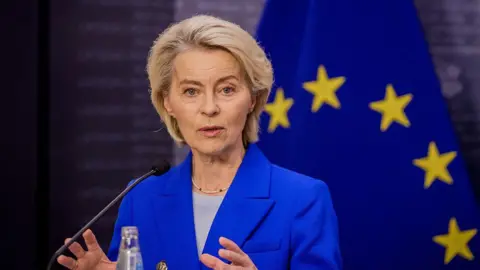In a significant ruling on May 14, 2025, the European Union's General Court in Luxembourg decided that the European Commission's refusal to disclose text messages exchanged between Ursula von der Leyen, the President of the Commission, and Pfizer's CEO, Albert Bourla, was indefensible. This case, originally brought forth by The New York Times in 2023, focused on text communications that took place in 2021 during the negotiations for Covid-19 vaccine contracts.
The court's decision addresses crucial issues regarding the transparency of public records in the EU, especially concerning critically relevant health agreements. The Commission argued that text messages are “short-lived” and therefore exempt from disclosure under EU transparency laws. However, the judges asserted that the Commission could not simply claim it did not possess the documents.
“It must provide credible explanations that enable both the public and the court to understand why these documents are inaccessible,” the judges ruled, underscoring the importance of holding public officials accountable. They added that the Commission had failed to convincingly demonstrate that the exchanged messages did not hold significant information regarding the procurement process for the vaccines.
This decision marks a crucial step toward greater transparency at the EU level, potentially paving the way for future disclosures of communications that influence public health policy and outcomes. The ruling underscores the public’s right to access information pertinent to significant public interest issues and reinforces the necessity for accountability in governmental negotiations with private entities.



















